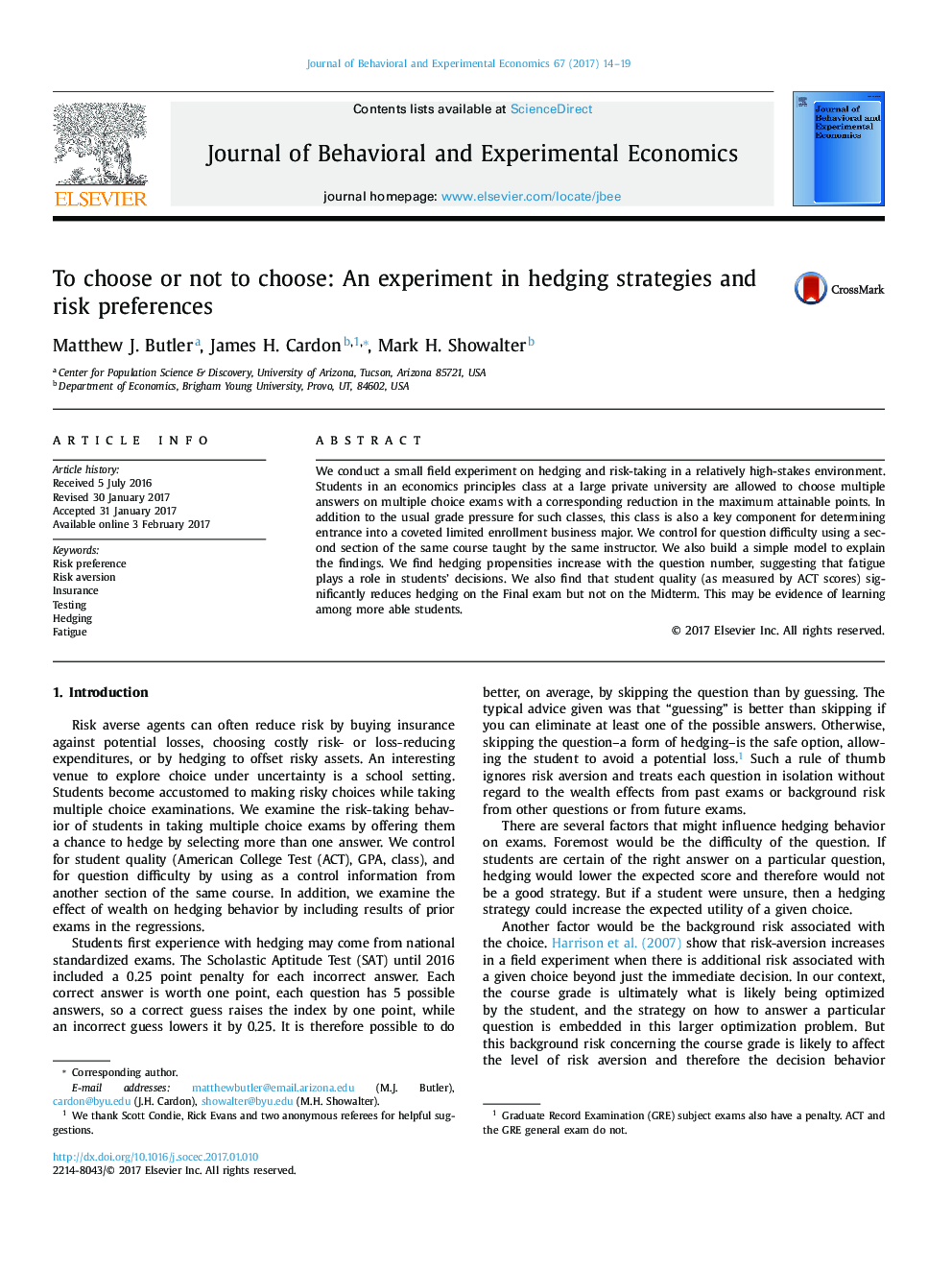| Article ID | Journal | Published Year | Pages | File Type |
|---|---|---|---|---|
| 5034136 | Journal of Behavioral and Experimental Economics | 2017 | 6 Pages |
â¢Classroom field experiment examining hedging behavior on examinations is performed.â¢Results from a second class taught by the same instructor used as a control.â¢Wealth (previous examination scores) reduces hedging propensities.â¢Students hedge more frequently on later questions, suggesting fatigue matters.â¢Better students (high ACT scores) less likely to hedge on second examination.
We conduct a small field experiment on hedging and risk-taking in a relatively high-stakes environment. Students in an economics principles class at a large private university are allowed to choose multiple answers on multiple choice exams with a corresponding reduction in the maximum attainable points. In addition to the usual grade pressure for such classes, this class is also a key component for determining entrance into a coveted limited enrollment business major. We control for question difficulty using a second section of the same course taught by the same instructor. We also build a simple model to explain the findings. We find hedging propensities increase with the question number, suggesting that fatigue plays a role in students' decisions. We also find that student quality (as measured by ACT scores) significantly reduces hedging on the Final exam but not on the Midterm. This may be evidence of learning among more able students.
